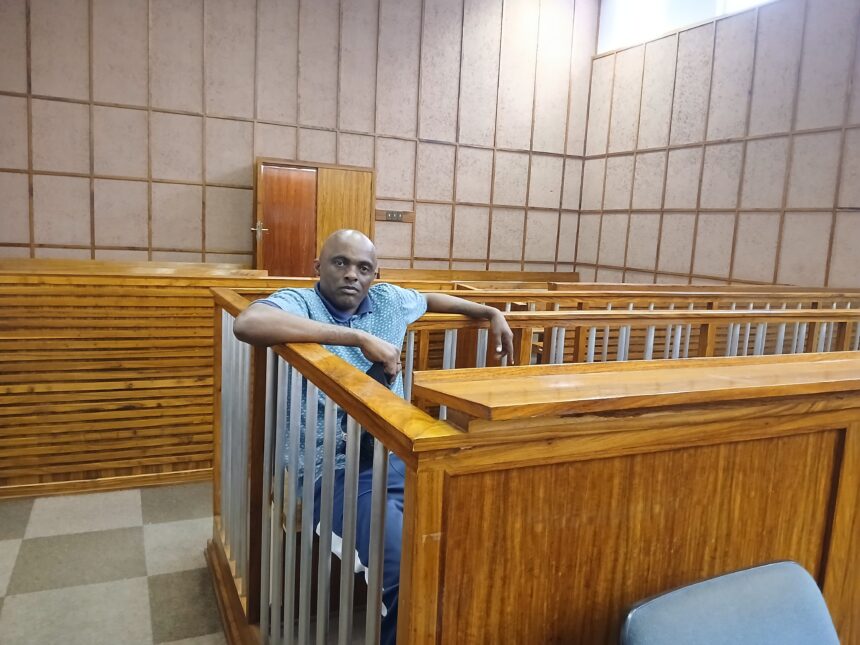Iuze Mukube
Windhoek High Court Judge Claudia Claasen on Friday sentenced Rodney Afrikaner to 25 years in prison for a count of murder, of which three years were suspended.
The 44-year-old man will remain behind bars for 22-years for the fatal stabbing of the mother of his minor children with a pair of scissors in 2019 in the Hakahana informal settlement.
Afrikaner was sentenced for murder under the provisions of the Combating of Domestic Violence Act for the murder of Patricia Hochobes.
During the mitigation of sentence, the accused had disagreed with the lengthy custodial sentence proposed by the prosecutor, Tangeni Itula.
He said his case is not equal to cited cases.
Afrikaner urged the court not to give him a lengthy custodial sentence, as his children’s future depends on him.
He opined that a sentence of six years imprisonment would be suitable.
He pointed to his incarceration since 10 February 2019, where he developed hypertension whilst in custody.
Afrikaner urged the court to be mindful that he also lost a loved one. Itula, counsel for the State, argued that the accused cannot escape a lengthy custodial sentence.
He pointed to the brutality of the attack, the accused’s nonchalant behaviour after the stabbing, and the accused’s total lack of remorse.
Claasen held that Afrikaner has not shown genuine remorse for the callous and cruel act.
“He has not taken personal responsibility for the loss of life – not at the time of death and not now”, she added.
Claasen said evidence has proven that the accused left their house, aware that his partner was bleeding profusely from the wounds he inflicted.
“He did not lift a finger to call an ambulance, nor has he demonstrated any concern for their minor children in the room that night. He nonchalantly went to sleep at another place,” she stated.
She added that it was only after the court elicited whether there is no degree of remorse that he apologised.
Claasen stated that it was equally difficult to ignore that the accused’s actions attract a high degree of blameworthiness.
“The deceased was his partner and mother of his children. The killing of a woman by an intimate partner is the most extreme form and consequence of violence,” she said.
She called it a betrayal of the worst kind, aggravated by the fact that not even the presence of his own children deterred Afrikaner from stabbing the deceased.
“It was a heartless act, and it was completely unnecessary, as the deceased merely did what any mother would do to protect her child,” Claasen stated.
The altercation that led to the victim’s death was due to her interference when the accused slapped their daughter for allegedly failing to answer a question.
She added that the relentless plague of gender-based violence remains a cause for deep societal concern.
Courts have consistently echoed that crimes which were committed in a domestic setting attract heavier sentences to alleviate such crimes.
“Criminal actions have consequences, and it is your action of brutally murdering your girlfriend that places you in this court,” said Claasen.
This is following the consideration of the accused’s personal circumstances.
Therefore, retribution and deterrence, as objectives of punishment, must come to the fore.
In addition, given the personal circumstances of the accused, the gravity of the offence and the legitimate interest of society, a lengthy custodial sentence cannot be avoided.


